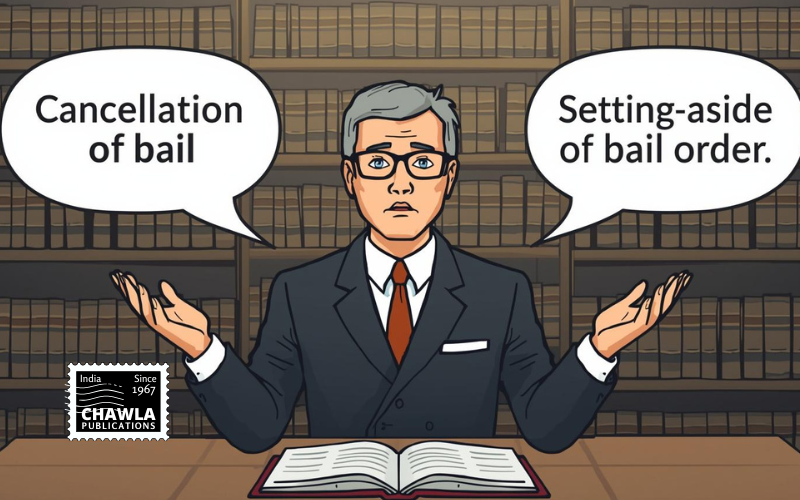Court Dismisses Petition Seeking Cancellation, Highlights Distinction Between Bail Cancellation and Setting-Aside of Bail Order
In a significant judgment, the Punjab and Haryana High Court upheld the anticipatory bail granted to Ashish, an accused in an assault case, while dismissing the petition filed for its cancellation. The judgment, delivered by Justice Sumeet Goel, reaffirms the legal principles distinguishing between the cancellation of bail and the setting-aside of a bail order under the Bharatiya Nagarik Suraksha Sanhita, 2023.
The case revolves around an altercation that took place on October 31, 2024, near a shop in Rohtak, resulting in injuries to Jatin, the complainant's brother. Ashish, the accused, had been granted anticipatory bail by the Additional Sessions Judge, Rohtak, on November 19, 2024. The petitioner, dissatisfied with this decision, sought its cancellation, arguing that the seriousness of the offence and the accused's conduct warranted such action.
Justice Goel's judgment, however, underscored the necessity of proving supervening circumstances, such as misuse of liberty, tampering with evidence, or intimidation of witnesses, to justify the cancellation of bail. The court emphasized that mere dissatisfaction with the reasoning behind the bail order or the gravity of the offence is insufficient grounds for cancellation. The judgment reiterated that the anticipatory bail granted by the Additional Sessions Court was a well-reasoned speaking order.
The court further clarified the distinction between cancellation of bail and setting-aside of a bail order. Cancellation involves misconduct or supervening events post-bail grant, while setting-aside challenges the legality or justification of the bail order on its merits. In this case, the petitioner failed to demonstrate any misconduct by the accused, such as evasion of the judicial process or influencing witnesses, which would warrant cancellation.
The judgment also addressed the petitioner’s argument regarding the accused’s plea of self-defence, noting that the Additional Sessions Judge had not conclusively adjudicated the plea but merely acknowledged its existence for trial consideration. Additionally, the court dismissed concerns about the non-recovery of the weapon of offence as insufficient for bail cancellation at the anticipatory stage.
Justice Goel's decision aligns with previous rulings, notably referring to a judgment in Dinesh Madan v. State of Haryana, which established guiding principles for bail cancellation and setting-aside. The judgment emphasizes the need for courts to distinguish clearly between these legal actions, ensuring clarity and ease in judicial proceedings.
The dismissal of the petition marks a reaffirmation of legal standards in anticipatory bail cases, emphasizing the importance of protecting individual liberties unless substantial evidence of misconduct or circumvention of justice is presented. The Punjab and Haryana High Court's decision stands as a testament to the judiciary's commitment to balancing individual rights and judicial integrity.
Pending applications related to the case were disposed of, and the judgment explicitly stated that it should not be construed as an expression of opinion on the case's merits.
Ashish v. State of Haryana, (Punjab And Haryana) : Law Finder Doc Id # 2779924




